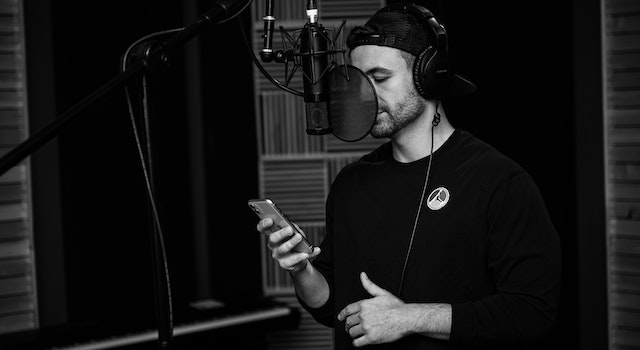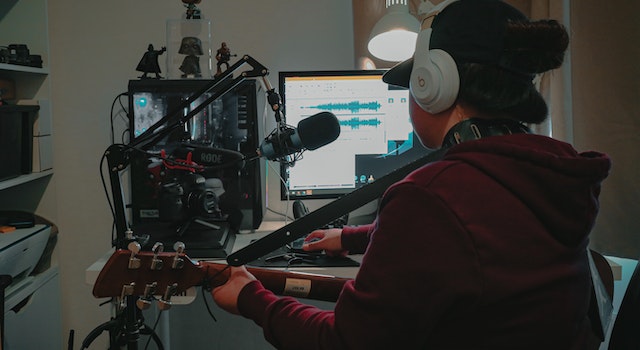How Long Does It Take To Learn To Sing?
The time required to master singing is contingent on many aspects, including aptitude, dedication, and the level of proficiency one wants to attain. It is important to remember that singing is a talent that requires constant repetition and perseverance to develop. Certain people might possess a natural talent for singing and quickly improve their abilities, whereas others might need to work harder to attain the same proficiency.
If you’re beginning from scratch, it is suggested that you attend singing lessons with a professional instructor who will help you master the basics of breathing correctly, singing techniques, and exercises that aid in developing your vocal range and control. Regular practice outside of lessons is important, and it’s recommended to set aside a minimum of 30 minutes each day to practice.
If they keep practicing, most people will notice an improvement in their singing ability within a few months. To be an expert singer who can be a professional and pursue a professional career in singing will require a long period of practicing and learning.
The most important thing to do to learn to sing is to have perseverance, practice regularly, and seek out guidance from a trained instructor who will help you improve your skills and achieve your goals. Through perseverance and dedication, everyone can learn how to sing and benefit from its numerous advantages, including increased confidence, relaxation, and self-expression.
The Factors Affect The Time Required To Learn How To Sing
There are a variety of aspects that affect the time required to master the art of singing. Let’s examine each of them:
-
Natural ability
One of the major elements that determines the length of time needed to master the art of singing is natural talent. Certain people can sing naturally, and others may work harder to attain the same performance standard. People with an inherent talent for singing could quickly increase their proficiency. In contrast, others might need to work harder and more frequently to reach a similar level of proficiency.
-
Practice and dedication
Another crucial factor that determines the amount of time required to master the art of singing is dedication and persistence. Singing is an art that requires regular practice to build and improve. Regular practice helps improve vocal muscles and create more control over breath and range. Those committed to enhancing their practice and abilities are likely to advance faster and reach greater competence.
-
Instruction and training
The quality of instruction and training will greatly impact the time required to learn what it takes to sing. Singing lessons with a professional instructor will aid beginners in learning the right methods to breathe, vocalize, and control pitch. Instructors can offer direction, feedback, and assistance that will help speed up the learning process. They can also help students establish positive habits and avoid bad ones that may slow their progress.
-
Aspirations and goals
The aspirations and goals of a singer may determine the time required to learn to sing. One interested in singing for fun or as a pastime may not have to put as much time and effort into their learning as someone who wishes to pursue a career in singing. Suppose you’re looking to pursue a music career. In that case, you will likely require hours of practice, training, and rehearsal to improve your skills and establish a successful profession as an experienced musician.
Various factors affect the amount of time it takes to learn to sing. Ability, dedication, practice, training and instruction, and aspirations influence the speed of development of their singing abilities. But, with consistent training, a determination to learn, and the right instruction, anyone can be taught to sing and enhance their singing skills.
The Various Phases Of Learning How To Sing
Singing is a process that has various steps. The following are the various phases of singing:
-
Beginner Stage
The beginning stage is the first stage in their journey. At this point, a singer is taught the fundamentals of singing, which include breathing techniques, posture, tone, pitch, and rhythm. In this stage, it’s essential to develop good habits and build a solid foundation for learning in the future. It’s suggested to learn with a professional instructor who will assist the singer in learning the basics of singing.
-
Intermediate Stage
In the intermediate phase, the singer starts to build upon their foundation and their skills. The singer improves their tone, pitch, and rhythm at this stage. They could also master more advanced techniques like vibrato, belting, and dynamics. At this point, it’s crucial to keep learning and practicing regularly.
-
Advanced Stage
The advanced stage is when the singer has developed their talents to a certain degree of proficiency. At this point, the singer could be able to perform in a professional capacity or even pursue a job singing. At this point, the singer concentrates on perfecting their technique and developing their distinctive design and style. They may also work on broadening their repertoire and trying out different styles.
-
Mastery Stage
Mastery is considered to be the most difficult stage in learning to sing. At this point, the singer has reached an extremely high level of proficiency and mastered their talents. They might have developed their distinctive style and sound and can be regarded as specialists. At this point, the artist may continue to develop their talents and offer their expertise and knowledge by instructing or mentoring others.
Singing involves a series of steps that include various stages. The beginning stage is when an individual singer builds a solid foundation. An intermediate level is when they begin to develop their abilities, while the advanced stage is when they reach a higher level of proficiency. Finally, the mastery stage is when students reach a level of mastery and are recognized for their talents. It’s essential to continue working and obtaining guidance from experienced instructors at every stage of learning.
Setting Realistic Expectations
When you’re learning to sing, it is essential to establish realistic expectations so you don’t end up disappointed and discontent. Here are some suggestions for making realistic goals:
-
Learning to sing requires time
Singing is a talent that takes some time and effort to develop. It’s crucial to realize that progress can sometimes be unsteady and that improvement might not be evident immediately. Consistent practice and patience are crucial to achieving great success as a singer.
-
Be aware that everybody has unique strengths and weaknesses
Each singer has strengths and weaknesses. Some singers possess an inherent talent for striking high notes, whereas others excel at vibrato or belting. It’s crucial to realize that each person has areas of strength and weakness and to work on improving your capabilities.
-
Don’t be a comparison to other people
The comparison of oneself with other artists is often demotivating and discouraging. Concentrating on one’s personal growth and development rather than making comparisons to other singers is important. Be aware that every singer has a unique path to take, and one should measure their progress against their own goals and accomplishments.
-
Set achievable goals
Setting realistic goals is crucial to becoming a successful singer. Goals that are excessively ambitious or unrealistic can cause disappointment and even anger. Begin by setting goals that can be achieved, and then gradually move towards larger goals as you make progress.
-
Take pleasure in the process
Singing should be a pleasurable process. It’s important to take on singing with enthusiasm and to be able to enjoy the process even when progress seems slow. Be grateful for small successes as you go along, and enjoy being in the learning process and growing.
Setting realistic expectations is vital in singing and a major part of learning. Recognizing progress will take time, and accepting that each person has strengths and weaknesses Don’t think of yourself as a competitor. Set realistic goals and have fun in the process. With perseverance, dedication, and a positive mindset, everyone can learn to sing and attain their goals.
Methods And Techniques To Speed Up Advancement
If singing is a new skill, a variety of strategies and techniques can aid in accelerating its progression. Here are some helpful tips to help you make quicker advancement:
-
Regularly practice
It is vital to practice consistently to accelerate the learning process when singing. Regular practice will help you strengthen your voice, improve your breath control, and create a greater tone and pitch. Make sure to do it every day for a minimum of thirty minutes. You can gradually increase the time you practice as you gain experience.
-
Warm-up exercises
Before singing, it’s important to warm up your vocal cords to avoid injuries and enhance your singing performance. Warm-up exercises, like lip trills, humming, and vocal scales, aid in loosening those vocal cords to prepare for singing.
-
Review and assess performance
Reviewing and recording performance recordings can assist singers in finding areas for improvement and tracking their progress. Replay recordings of performances and make a note of areas in need of improvement, like tone, pitch, or breathing control. Use this feedback to alter the practice routine and concentrate on areas that require improvement.
-
Get feedback and get guidance
The need for feedback and advice from a skilled teacher or mentor can speed up learning to sing. Instructors can offer advice, feedback, and assistance that will aid singers in developing healthy habits and avoiding poor ones. They may also give suggestions and strategies for enhancing performance and conquering challenges.
-
Explore various styles and genres
Exploring various genres and styles of music may help vocalists gain an array of abilities and broaden their repertoire. Exploring various genres and styles will also aid in developing an individual aesthetic and sound.
-
Make sure you take care of your voice
The health of the vocal cords is crucial to speeding up advancement in learning how to sing. This means staying hydrated by avoiding smoking and excessive drinking, and staying clear of shouting or screaming. The ability to rest your voice when it is tired or strained is essential for maintaining its health.
Many techniques and methods can speed up the process of singing. Doing warm-up exercises, practicing, taking notes and analyzing the performance, getting feedback and advice, trying various genres and styles, and being mindful of your voice are all necessary to make progress faster. Everyone can increase their singing abilities and reach their goals through dedication, perseverance, and the correct techniques.
Common Issues When Singing
Singing can be an enjoyable experience. However, it can also cause regular problems. Here are a few of the most frequent difficulties in singing:
-
Pitch Control
Controlling pitch is among the most frequent challenges new singers face. Singers might struggle to find the correct pitch, especially in the lower or higher ranges. This problem can be resolved with proper training and practice of vocal exercises to improve pitch precision.
-
Breathing Techniques
The breathing techniques singers use are vital to singing, yet many novice singers have difficulty controlling their breath and maintaining an even airflow when they sing. This can result in tension or a shaken voice, especially during long phrases. Training exercises like breathing drills and correct posture can assist singers in improving their breathing control.
-
Rhythm and Timing
The ability to keep time and rhythm can be difficult for novice singers. Singers may have difficulty staying on the right track or maintaining a steady beat while singing. By practicing with a metronome or drum beat, clapping in time, and singing along to an accompanying track, this problem can be solved.
-
Vocal Strain
Vocal strain can happen when a performer overuses their voice or doesn’t utilize the correct technique. This can cause hoarseness and fatigue of the vocals, among other vocal issues. A proper vocal warm-up, practicing within a comfortable range, and abstaining from bad habits like shouting or screaming can prevent strain on the vocal cords.
-
Confidence and Stage Fright
Many singers have stage fright and confidence issues, particularly when performing in the presence of other performers. This can result in shaky or strenuous performances and make it difficult to progress. Making sure you are confident by regularly practicing singing in front of family and friends, as well as working with an instructor, will aid singers in overcoming stage anxiety.
Learning to sing may present certain common difficulties, including breathing techniques, pitch control, timing and rhythm, vocal strain, confidence, and stage anxiety. But with the right training, practice, and guidance, these issues can be overcome, and singers can develop their capabilities and attain their objectives.
Resolving Challenges And Setbacks
As you learn to sing, setbacks and difficulties will always be there. However, overcoming these obstacles is important to attaining the success you desire as a singer. Here are some helpful tips for conquering setbacks and obstacles in trying to learn to sing:
-
Find out the cause
The first step to overcoming a setback or challenge is to determine the cause. Consider the root of the problem and then pinpoint the specific areas that require improvement. Recognizing the issue will allow you to devise a plan to deal with it effectively.
-
Seek guidance
Seeking advice from a certified instructor or mentor could be useful when you face challenges or difficulties. Instructors can offer strategies, tips, and advice to overcome challenges and progress.
-
Regularly practice
A consistent practice routine is vital to getting over setbacks and challenges. Make sure to practice regularly by focusing on areas that require improvement. You should practice with an objective in mind and utilize the instructor’s feedback to modify the practice routine.
-
Keep your eyes on the prize
It’s crucial to keep an optimistic mindset when facing difficulties and obstacles. Being positive can help you overcome challenges and keep you motivated. Be grateful for small successes as you go, but be aware that progress will take time.
-
Pause for a moment
Taking a break can be helpful when faced with challenges and setbacks. Removing yourself from the situation and allowing your voice to rest can help avoid fatigue and strain. A break can assist in letting your mind clear and give you an enlightened perspective.
-
Learn from failures
Setbacks are an integral element of learning. Instead of being discouraged, make use of setbacks to develop and improve. Examine the setback, determine the problem, and apply the lessons to modify your practice routine and how you sing.
Setbacks and challenges are aspects of singing. However, with the proper strategy, you can overcome these obstacles. Find the issue, seek advice to practice regularly, remain positive, take breaks when needed, and learn from failures. If you are persistent and committed, everyone can overcome obstacles and setbacks to achieve success as a musician.
Practical Suggestions For Improving Your Singing Abilities
The process of improving your singing skills requires commitment and repetition. Here are some helpful suggestions for improving your singing:
-
Proper posture
A proper posture is vital to singing. Make sure you stand straight with your shoulders back and your feet wide apart. Keep your head straight and do not hunch or slump over. This will create more breathing space for the lungs and improve breathing control.
-
Techniques for breathing
Breathing techniques are essential for singing. Inhale deeply through the diaphragm instead of shallow breaths in the chest. Try breathing exercises such as breathing four times, holding your breath four times, and exhaling four times.
-
Warm-ups for vocals
Warm-up exercises for vocals are essential to getting the voice ready for singing. Do vocal exercises like lip trills, humming, and vocal scales to warm the vocal cords and increase breathing control and pitch accuracy.
-
Regularly practice
Continuous practice is vital to developing your singing abilities. Regularly practice, focusing on areas that require improvement. Try to do this for at least 30 minutes daily, and gradually increase the time you practice as you progress.
-
Review and assess performance
Recording and evaluating the performance can allow singers to pinpoint areas for improvement and track their progress. Replay the recordings and note areas needing improvement, like tone, pitch, or breathing control. Utilize this feedback to modify the practice routine and concentrate on areas that require improvement.
-
Explore various genres and styles
Exploring various genres and music styles may help musicians build more diverse skills and broaden their repertoire. Experimenting with different genres and styles can help develop unique sounds and styles.
-
Ask for feedback and direction
Getting feedback and direction from a trained instructor or coach can help singers form positive habits and avoid bad ones. Instructors can offer guidance, feedback, and assistance to help singers develop their abilities and overcome challenges.
Improving your singing abilities requires time, effort, and commitment. Correct posture, breathing, and vocal warm-ups, consistent practice recording and evaluating your performances, experimenting with different kinds of music and styles, and getting feedback and advice are all helpful ways to improve your singing. With perseverance and dedication, everyone can improve their singing ability and meet their goals.
Technology’s Role In Teaching To Sing
Technology is playing an increasing role in the development of singing skills. Here are a few ways technology can be utilized to help improve your singing:
-
Online tutorials and classes
Online tutorials and classes are a simple and easy way to learn to sing. Various platforms and websites provide classes and tutorials in singing, focusing on topics like breathing techniques, control of pitch, and warm-ups for the vocal. Online courses usually comprise audio, video, and written materials to help students learn.
-
Vocal training apps
Vocal-training apps are another helpful tool for learning how to sing. They often contain exercises and games that aid singers in improving their pitch, breath control, and other skills essential to singing. A lot of vocal training apps offer feedback and advice from experienced instructors.
-
Technology for recording and playback
Recording and playback technology can be an effective tool to evaluate and improve your singing skills. Recording technology, including digital audio recorders or smartphone apps, can record practice and performance sessions. Playback technology lets singers watch their performances, spot areas to improve, and modify their routines to suit.
-
Software for analyzing vocal sounds
Software for analyzing vocals is an effective tool to improve your singing. The software employs advanced algorithms to analyze the vocal performance and provide feedback on the accuracy of pitch, tone quality, and many other aspects of vocal performance. Vocal analysis software can find areas for improvement and track the improvements over time.
-
Virtual technology for augmented reality
The technology of virtual reality is a new technique that is utilized to enhance singing abilities. Virtual reality software simulates the performance environment, allowing singers to practice their singing in front of an audience in virtual reality. Virtual reality technology can give feedback on breathing, posture, and other vital techniques.
Technology has played an important role in improving singing abilities. Online tutorials and classes, including vocal training apps, technology for recording and playback, software for vocal analysis, and virtual reality, are all helpful methods for learning how to sing. The singers can increase their performance and meet their goals by incorporating these technologies into their practice routines.
FAQ’s
How long does it generally take to learn to sing?
The time it takes to learn to sing varies from person to person. However, with consistent practice and proper guidance, many individuals start seeing improvements within a few months.
Can anyone learn to sing, regardless of their natural talent?
Yes, anyone can learn to sing. While some people may have a natural inclination towards singing, vocal skills can be developed and improved through training, practice, and understanding of vocal techniques.
Are there any shortcuts or quick methods to become a good singer?
Becoming a skilled singer requires time and effort. While there are no guaranteed shortcuts, taking lessons from a qualified vocal coach, practicing regularly, and maintaining good vocal health can expedite the learning process.
How often should I practice to become a proficient singer?
Regular practice is crucial for developing singing skills. Aim for daily practice sessions of at least 20-30 minutes. Consistency and quality of practice matter more than the duration, so it’s better to have shorter, focused sessions than long, sporadic ones.
Can I learn to sing on my own, or do I need a vocal coach?
While it is possible to learn singing on your own using online resources and instructional materials, having a vocal coach or instructor provides valuable guidance, personalized feedback, and helps prevent bad habits that may hinder progress. They can tailor exercises to your specific needs and help you reach your vocal goals more efficiently.
How long does it take to become a professional singer?
Becoming a professional singer depends on various factors, such as your starting point, talent, dedication, practice routine, and the opportunities you pursue. It typically takes years of consistent training, performance experience, and honing your skills to reach a professional level. However, each individual’s journey is unique, and some may achieve professional success sooner than others.
How Long Does It Take To Learn To Sing?
The time required to master singing is contingent on many aspects, including aptitude, dedication, and the level of proficiency one wants to attain. It is important to remember that singing is a talent that requires constant repetition and perseverance to develop. Certain people might possess a natural talent for singing and quickly improve their abilities, whereas others might need to work harder to attain the same proficiency.
If you’re beginning from scratch, it is suggested that you attend singing lessons with a professional instructor who will help you master the basics of breathing correctly, singing techniques, and exercises that aid in developing your vocal range and control. Regular practice outside of lessons is important, and it’s recommended to set aside a minimum of 30 minutes each day to practice.
If they keep practicing, most people will notice an improvement in their singing ability within a few months. To be an expert singer who can be a professional and pursue a professional career in singing will require a long period of practicing and learning.
The most important thing to do to learn to sing is to have perseverance, practice regularly, and seek out guidance from a trained instructor who will help you improve your skills and achieve your goals. Through perseverance and dedication, everyone can learn how to sing and benefit from its numerous advantages, including increased confidence, relaxation, and self-expression.
The Factors Affect The Time Required To Learn How To Sing
There are a variety of aspects that affect the time required to master the art of singing. Let’s examine each of them:
-
Natural ability
One of the major elements that determines the length of time needed to master the art of singing is natural talent. Certain people can sing naturally, and others may work harder to attain the same performance standard. People with an inherent talent for singing could quickly increase their proficiency. In contrast, others might need to work harder and more frequently to reach a similar level of proficiency.
-
Practice and dedication
Another crucial factor that determines the amount of time required to master the art of singing is dedication and persistence. Singing is an art that requires regular practice to build and improve. Regular practice helps improve vocal muscles and create more control over breath and range. Those committed to enhancing their practice and abilities are likely to advance faster and reach greater competence.
-
Instruction and training
The quality of instruction and training will greatly impact the time required to learn what it takes to sing. Singing lessons with a professional instructor will aid beginners in learning the right methods to breathe, vocalize, and control pitch. Instructors can offer direction, feedback, and assistance that will help speed up the learning process. They can also help students establish positive habits and avoid bad ones that may slow their progress.
-
Aspirations and goals
The aspirations and goals of a singer may determine the time required to learn to sing. One interested in singing for fun or as a pastime may not have to put as much time and effort into their learning as someone who wishes to pursue a career in singing. Suppose you’re looking to pursue a music career. In that case, you will likely require hours of practice, training, and rehearsal to improve your skills and establish a successful profession as an experienced musician.
Various factors affect the amount of time it takes to learn to sing. Ability, dedication, practice, training and instruction, and aspirations influence the speed of development of their singing abilities. But, with consistent training, a determination to learn, and the right instruction, anyone can be taught to sing and enhance their singing skills.
The Various Phases Of Learning How To Sing
Singing is a process that has various steps. The following are the various phases of singing:
-
Beginner Stage
The beginning stage is the first stage in their journey. At this point, a singer is taught the fundamentals of singing, which include breathing techniques, posture, tone, pitch, and rhythm. In this stage, it’s essential to develop good habits and build a solid foundation for learning in the future. It’s suggested to learn with a professional instructor who will assist the singer in learning the basics of singing.
-
Intermediate Stage
In the intermediate phase, the singer starts to build upon their foundation and their skills. The singer improves their tone, pitch, and rhythm at this stage. They could also master more advanced techniques like vibrato, belting, and dynamics. At this point, it’s crucial to keep learning and practicing regularly.
-
Advanced Stage
The advanced stage is when the singer has developed their talents to a certain degree of proficiency. At this point, the singer could be able to perform in a professional capacity or even pursue a job singing. At this point, the singer concentrates on perfecting their technique and developing their distinctive design and style. They may also work on broadening their repertoire and trying out different styles.
-
Mastery Stage
Mastery is considered to be the most difficult stage in learning to sing. At this point, the singer has reached an extremely high level of proficiency and mastered their talents. They might have developed their distinctive style and sound and can be regarded as specialists. At this point, the artist may continue to develop their talents and offer their expertise and knowledge by instructing or mentoring others.
Singing involves a series of steps that include various stages. The beginning stage is when an individual singer builds a solid foundation. An intermediate level is when they begin to develop their abilities, while the advanced stage is when they reach a higher level of proficiency. Finally, the mastery stage is when students reach a level of mastery and are recognized for their talents. It’s essential to continue working and obtaining guidance from experienced instructors at every stage of learning.
Setting Realistic Expectations
When you’re learning to sing, it is essential to establish realistic expectations so you don’t end up disappointed and discontent. Here are some suggestions for making realistic goals:
-
Learning to sing requires time
Singing is a talent that takes some time and effort to develop. It’s crucial to realize that progress can sometimes be unsteady and that improvement might not be evident immediately. Consistent practice and patience are crucial to achieving great success as a singer.
-
Be aware that everybody has unique strengths and weaknesses
Each singer has strengths and weaknesses. Some singers possess an inherent talent for striking high notes, whereas others excel at vibrato or belting. It’s crucial to realize that each person has areas of strength and weakness and to work on improving your capabilities.
-
Don’t be a comparison to other people
The comparison of oneself with other artists is often demotivating and discouraging. Concentrating on one’s personal growth and development rather than making comparisons to other singers is important. Be aware that every singer has a unique path to take, and one should measure their progress against their own goals and accomplishments.
-
Set achievable goals
Setting realistic goals is crucial to becoming a successful singer. Goals that are excessively ambitious or unrealistic can cause disappointment and even anger. Begin by setting goals that can be achieved, and then gradually move towards larger goals as you make progress.
-
Take pleasure in the process
Singing should be a pleasurable process. It’s important to take on singing with enthusiasm and to be able to enjoy the process even when progress seems slow. Be grateful for small successes as you go along, and enjoy being in the learning process and growing.
Setting realistic expectations is vital in singing and a major part of learning. Recognizing progress will take time, and accepting that each person has strengths and weaknesses Don’t think of yourself as a competitor. Set realistic goals and have fun in the process. With perseverance, dedication, and a positive mindset, everyone can learn to sing and attain their goals.
Methods And Techniques To Speed Up Advancement
If singing is a new skill, a variety of strategies and techniques can aid in accelerating its progression. Here are some helpful tips to help you make quicker advancement:
-
Regularly practice
It is vital to practice consistently to accelerate the learning process when singing. Regular practice will help you strengthen your voice, improve your breath control, and create a greater tone and pitch. Make sure to do it every day for a minimum of thirty minutes. You can gradually increase the time you practice as you gain experience.
-
Warm-up exercises
Before singing, it’s important to warm up your vocal cords to avoid injuries and enhance your singing performance. Warm-up exercises, like lip trills, humming, and vocal scales, aid in loosening those vocal cords to prepare for singing.
-
Review and assess performance
Reviewing and recording performance recordings can assist singers in finding areas for improvement and tracking their progress. Replay recordings of performances and make a note of areas in need of improvement, like tone, pitch, or breathing control. Use this feedback to alter the practice routine and concentrate on areas that require improvement.
-
Get feedback and get guidance
The need for feedback and advice from a skilled teacher or mentor can speed up learning to sing. Instructors can offer advice, feedback, and assistance that will aid singers in developing healthy habits and avoiding poor ones. They may also give suggestions and strategies for enhancing performance and conquering challenges.
-
Explore various styles and genres
Exploring various genres and styles of music may help vocalists gain an array of abilities and broaden their repertoire. Exploring various genres and styles will also aid in developing an individual aesthetic and sound.
-
Make sure you take care of your voice
The health of the vocal cords is crucial to speeding up advancement in learning how to sing. This means staying hydrated by avoiding smoking and excessive drinking, and staying clear of shouting or screaming. The ability to rest your voice when it is tired or strained is essential for maintaining its health.
Many techniques and methods can speed up the process of singing. Doing warm-up exercises, practicing, taking notes and analyzing the performance, getting feedback and advice, trying various genres and styles, and being mindful of your voice are all necessary to make progress faster. Everyone can increase their singing abilities and reach their goals through dedication, perseverance, and the correct techniques.
Common Issues When Singing
Singing can be an enjoyable experience. However, it can also cause regular problems. Here are a few of the most frequent difficulties in singing:
-
Pitch Control
Controlling pitch is among the most frequent challenges new singers face. Singers might struggle to find the correct pitch, especially in the lower or higher ranges. This problem can be resolved with proper training and practice of vocal exercises to improve pitch precision.
-
Breathing Techniques
The breathing techniques singers use are vital to singing, yet many novice singers have difficulty controlling their breath and maintaining an even airflow when they sing. This can result in tension or a shaken voice, especially during long phrases. Training exercises like breathing drills and correct posture can assist singers in improving their breathing control.
-
Rhythm and Timing
The ability to keep time and rhythm can be difficult for novice singers. Singers may have difficulty staying on the right track or maintaining a steady beat while singing. By practicing with a metronome or drum beat, clapping in time, and singing along to an accompanying track, this problem can be solved.
-
Vocal Strain
Vocal strain can happen when a performer overuses their voice or doesn’t utilize the correct technique. This can cause hoarseness and fatigue of the vocals, among other vocal issues. A proper vocal warm-up, practicing within a comfortable range, and abstaining from bad habits like shouting or screaming can prevent strain on the vocal cords.
-
Confidence and Stage Fright
Many singers have stage fright and confidence issues, particularly when performing in the presence of other performers. This can result in shaky or strenuous performances and make it difficult to progress. Making sure you are confident by regularly practicing singing in front of family and friends, as well as working with an instructor, will aid singers in overcoming stage anxiety.
Learning to sing may present certain common difficulties, including breathing techniques, pitch control, timing and rhythm, vocal strain, confidence, and stage anxiety. But with the right training, practice, and guidance, these issues can be overcome, and singers can develop their capabilities and attain their objectives.
Resolving Challenges And Setbacks
As you learn to sing, setbacks and difficulties will always be there. However, overcoming these obstacles is important to attaining the success you desire as a singer. Here are some helpful tips for conquering setbacks and obstacles in trying to learn to sing:
-
Find out the cause
The first step to overcoming a setback or challenge is to determine the cause. Consider the root of the problem and then pinpoint the specific areas that require improvement. Recognizing the issue will allow you to devise a plan to deal with it effectively.
-
Seek guidance
Seeking advice from a certified instructor or mentor could be useful when you face challenges or difficulties. Instructors can offer strategies, tips, and advice to overcome challenges and progress.
-
Regularly practice
A consistent practice routine is vital to getting over setbacks and challenges. Make sure to practice regularly by focusing on areas that require improvement. You should practice with an objective in mind and utilize the instructor’s feedback to modify the practice routine.
-
Keep your eyes on the prize
It’s crucial to keep an optimistic mindset when facing difficulties and obstacles. Being positive can help you overcome challenges and keep you motivated. Be grateful for small successes as you go, but be aware that progress will take time.
-
Pause for a moment
Taking a break can be helpful when faced with challenges and setbacks. Removing yourself from the situation and allowing your voice to rest can help avoid fatigue and strain. A break can assist in letting your mind clear and give you an enlightened perspective.
-
Learn from failures
Setbacks are an integral element of learning. Instead of being discouraged, make use of setbacks to develop and improve. Examine the setback, determine the problem, and apply the lessons to modify your practice routine and how you sing.
Setbacks and challenges are aspects of singing. However, with the proper strategy, you can overcome these obstacles. Find the issue, seek advice to practice regularly, remain positive, take breaks when needed, and learn from failures. If you are persistent and committed, everyone can overcome obstacles and setbacks to achieve success as a musician.
Practical Suggestions For Improving Your Singing Abilities
The process of improving your singing skills requires commitment and repetition. Here are some helpful suggestions for improving your singing:
-
Proper posture
A proper posture is vital to singing. Make sure you stand straight with your shoulders back and your feet wide apart. Keep your head straight and do not hunch or slump over. This will create more breathing space for the lungs and improve breathing control.
-
Techniques for breathing
Breathing techniques are essential for singing. Inhale deeply through the diaphragm instead of shallow breaths in the chest. Try breathing exercises such as breathing four times, holding your breath four times, and exhaling four times.
-
Warm-ups for vocals
Warm-up exercises for vocals are essential to getting the voice ready for singing. Do vocal exercises like lip trills, humming, and vocal scales to warm the vocal cords and increase breathing control and pitch accuracy.
-
Regularly practice
Continuous practice is vital to developing your singing abilities. Regularly practice, focusing on areas that require improvement. Try to do this for at least 30 minutes daily, and gradually increase the time you practice as you progress.
-
Review and assess performance
Recording and evaluating the performance can allow singers to pinpoint areas for improvement and track their progress. Replay the recordings and note areas needing improvement, like tone, pitch, or breathing control. Utilize this feedback to modify the practice routine and concentrate on areas that require improvement.
-
Explore various genres and styles
Exploring various genres and music styles may help musicians build more diverse skills and broaden their repertoire. Experimenting with different genres and styles can help develop unique sounds and styles.
-
Ask for feedback and direction
Getting feedback and direction from a trained instructor or coach can help singers form positive habits and avoid bad ones. Instructors can offer guidance, feedback, and assistance to help singers develop their abilities and overcome challenges.
Improving your singing abilities requires time, effort, and commitment. Correct posture, breathing, and vocal warm-ups, consistent practice recording and evaluating your performances, experimenting with different kinds of music and styles, and getting feedback and advice are all helpful ways to improve your singing. With perseverance and dedication, everyone can improve their singing ability and meet their goals.
Technology’s Role In Teaching To Sing
Technology is playing an increasing role in the development of singing skills. Here are a few ways technology can be utilized to help improve your singing:
-
Online tutorials and classes
Online tutorials and classes are a simple and easy way to learn to sing. Various platforms and websites provide classes and tutorials in singing, focusing on topics like breathing techniques, control of pitch, and warm-ups for the vocal. Online courses usually comprise audio, video, and written materials to help students learn.
-
Vocal training apps
Vocal-training apps are another helpful tool for learning how to sing. They often contain exercises and games that aid singers in improving their pitch, breath control, and other skills essential to singing. A lot of vocal training apps offer feedback and advice from experienced instructors.
-
Technology for recording and playback
Recording and playback technology can be an effective tool to evaluate and improve your singing skills. Recording technology, including digital audio recorders or smartphone apps, can record practice and performance sessions. Playback technology lets singers watch their performances, spot areas to improve, and modify their routines to suit.
-
Software for analyzing vocal sounds
Software for analyzing vocals is an effective tool to improve your singing. The software employs advanced algorithms to analyze the vocal performance and provide feedback on the accuracy of pitch, tone quality, and many other aspects of vocal performance. Vocal analysis software can find areas for improvement and track the improvements over time.
-
Virtual technology for augmented reality
The technology of virtual reality is a new technique that is utilized to enhance singing abilities. Virtual reality software simulates the performance environment, allowing singers to practice their singing in front of an audience in virtual reality. Virtual reality technology can give feedback on breathing, posture, and other vital techniques.
Technology has played an important role in improving singing abilities. Online tutorials and classes, including vocal training apps, technology for recording and playback, software for vocal analysis, and virtual reality, are all helpful methods for learning how to sing. The singers can increase their performance and meet their goals by incorporating these technologies into their practice routines.
FAQ’s
How long does it generally take to learn to sing?
The time it takes to learn to sing varies from person to person. However, with consistent practice and proper guidance, many individuals start seeing improvements within a few months.
Can anyone learn to sing, regardless of their natural talent?
Yes, anyone can learn to sing. While some people may have a natural inclination towards singing, vocal skills can be developed and improved through training, practice, and understanding of vocal techniques.
Are there any shortcuts or quick methods to become a good singer?
Becoming a skilled singer requires time and effort. While there are no guaranteed shortcuts, taking lessons from a qualified vocal coach, practicing regularly, and maintaining good vocal health can expedite the learning process.
How often should I practice to become a proficient singer?
Regular practice is crucial for developing singing skills. Aim for daily practice sessions of at least 20-30 minutes. Consistency and quality of practice matter more than the duration, so it’s better to have shorter, focused sessions than long, sporadic ones.
Can I learn to sing on my own, or do I need a vocal coach?
While it is possible to learn singing on your own using online resources and instructional materials, having a vocal coach or instructor provides valuable guidance, personalized feedback, and helps prevent bad habits that may hinder progress. They can tailor exercises to your specific needs and help you reach your vocal goals more efficiently.
How long does it take to become a professional singer?
Becoming a professional singer depends on various factors, such as your starting point, talent, dedication, practice routine, and the opportunities you pursue. It typically takes years of consistent training, performance experience, and honing your skills to reach a professional level. However, each individual’s journey is unique, and some may achieve professional success sooner than others.













